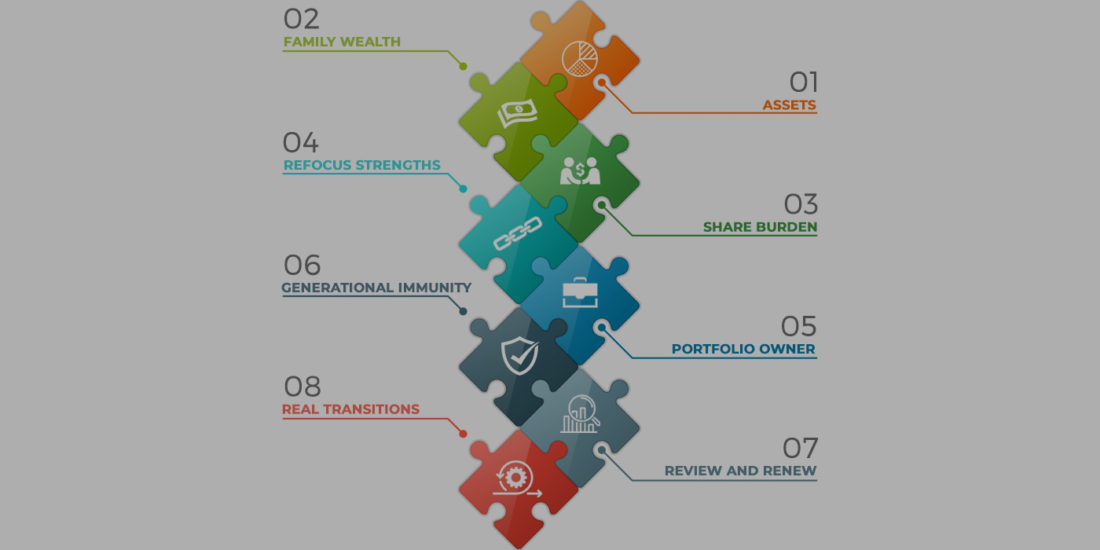
Cross-cultural
Articles exploring the cross-cultural dynamics of family companies from the perspectives of practitioners around the world.
Chief Emotional Officers in Asia’s Collectivist Cultures
Thanks to the FFI Asian Circle Virtual Study Group members, Linda Salim and Kimberly Go for this week’s edition that examines the important role of the Chief Emotional Officer (CEO) in Asian family enterprises.
Challenges of the Sandwich Generation in Leading a Family Enterprise
Thanks to the FFI Asian Circle Virtual Study Group and Yirhan Sim for this week’s edition that features a family enterprise case that demonstrates the challenges experienced by the “sandwich generation” through the transition to lead a family enterprise.
Three Kingdoms: Three Succession Results from Chinese-Indonesian Family Businesses
Thanks to the FFI Asian Circle Virtual Study Group and Linda Salim for this week’s edition featuring mini-cases on succession planning in three Chinese-Indonesian family enterprises with lessons for advisors around the world.
Wealthy Women as an Accelerator for Sustainability Impact
This week, we are pleased to share a summary of a recent survey of wealthy Nordic women aimed at gaining a better understanding of what drives their investing decisions.
The Tao of Conflict Resolution in Family Businesses
Thanks to this week’s contributors and members of the FFI Asian Circle Virtual Study Group, Yukio Fujimi, Chikako Kishihara, and Kazuyoshi Takei, for their article that provides an overview of the Taoist approach to family therapy.
Advising Business Families in Asia: Starting the conversation on generational transition with the Six Buckets Exercise
This week, we are pleased to feature an article by 2020 FFI Fellow Thomas Ang with a suggested approach for advisors to begin discussing wealth transition with their family enterprise clients.
Disruption-in-Disruptions: Eight actions advisors should bring to their client families
During times of disruption, how can family enterprise advisors help their clients navigate unchartered waters to survive turbulence and prepare for an unpredictable future?
Mid-Autumn Festival: Lessons for family businesses
We hope you’ve been enjoying the month-long FFI Practitioner series dedicated to the theme of “Reflections,” which concludes this week with a piece by Paul Chung and Chin Chin Koh. In this article, the contributors reflect on the ancient Chinese Mid-Autumn Festival and explore its parallels to family enterprise.
Decision-Making Processes in Family Businesses in Latin America
The decision-making process within a family business can be one of the most complex issues confronting consultants when working with a client. This week, we’re fortunate to share an article from Luis Medina, where he examines these complex processes within the context of Latin American family businesses.
Rising Female Power in Asian Business Families: Evolving advising practices?
Female entrepreneurship and leadership is gaining momentum in Asia. Asian female entrepreneurs create more and more wealth.
Evolution of Family Business Advisors in India
In India, family businesses range from small mom-and-pop stores to large conglomerates with equally varied business interests.
The Evolving Perception of Family Businesses in the Middle East and North Africa (MENA)
There will be few today who would not agree that family businesses are of chief importance in shaping the future of the MENA. This was not always the case, and only a decade ago perceptions were quite different.
Myths & Realities in the Arab World
The Arab world is a complex region. It is geographically, culturally, historically diverse, yet, from the outside, it is often perceived as a homogeneous region and stereotypes are applied across the board.
Myths & Realities in Family Businesses in Puerto Rico
Puerto Rico is one of the most developed countries in the Caribbean, located between North and South America where more family businesses successfully transfer ownership to the next generation than has been previously reported in the rest of the world.
Celebrating and Inspiring Philanthropy around the World
Following on ten other articles on philanthropy this year, The Practitioner is pleased to present “Celebrating and Inspiring Philanthropy around the World” by Lenka Setkova.
The Evolving Context of Family Enterprise Consulting in the Caribbean
The private sector in the Caribbean is comprised of a relatively small number of large multinational and national or regional firms, a larger number of medium-sized entities, and a preponderance of small/micro enterprises [1].













